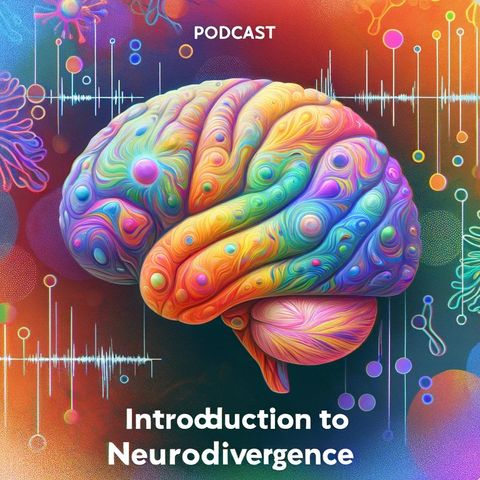Neurodivergence refers to variations in the human brain and cognition, for instance in sociability, learning, attention, mood and other mental functions.[1] It's a relatively new term that has become popular in recent years as an alternative to medical labels like autism, ADHD, dyslexia, and others. The neurodiversity movement emphasizes that neurological differences should be recognized and respected as a natural form of human diversity, rather than pathologized as disorders or disabilities.[2] The term neurodivergent is used to describe someone whose neurocognitive functioning differs from what is considered "typical" or neurotypical. Neurodiversity proponents point out that everyone's brain works slightly differently, and that neurodivergence is simply part of the natural spectrum of human neurological variation. Many neurodivergent people prefer identity-first language (i.e. "autistic person") rather than person-first language (i.e. "person with autism"), because they consider their neurotype to be an intrinsic part of their identity.[3] It's estimated that around 15-20% of the population is neurodivergent.[4] Some of the most common forms of neurodivergence include:
- Autism spectrum disorder (ASD)
- Attention deficit hyperactivity disorder (ADHD)
- Dyslexia
- Dyspraxia
- Dyscalculia
- Tourette syndrome
- Synesthesia
- Epilepsy
- Chronic mental health illnesses such as bipolar disorder, OCD, borderline personality disorder, and schizophrenia.[5][6]
Many people are neurodivergent in more than one way, for example being both autistic and dyslexic. There is significant overlap and co-occurrence between different forms of neurodivergence.[7] The concept of neurodivergence provides a framework for understanding neurological differences as natural variations rather than deficits. It shifts away from a medical model that focuses on "fixing" or "curing" neurominorities, towards a social model that emphasizes barrier removal, inclusion, and support to allow neurodivergent people to thrive.[8] The neurodiversity paradigm has been enormously influential in how neurological differences are viewed and approached.


Comments